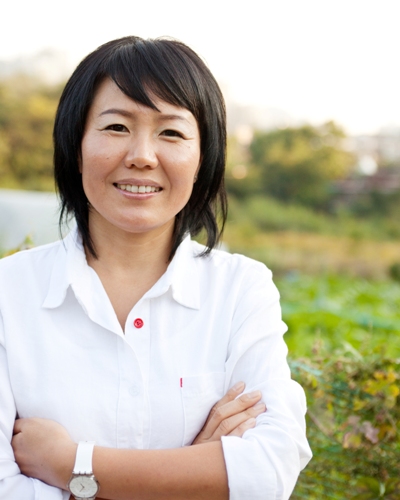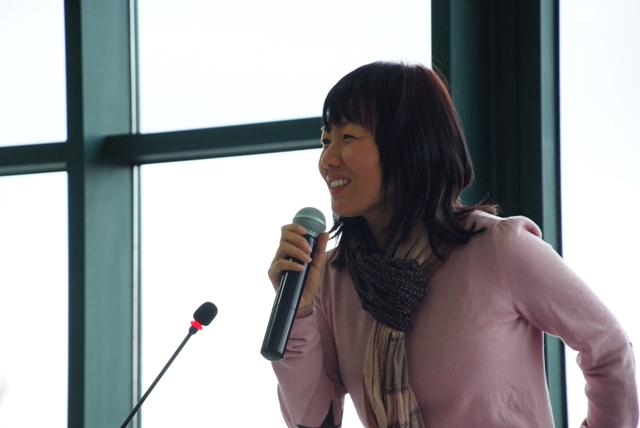| |
 |
|
| Keum Suk Gendry-Kim looks into the lives of “comfort women” in her latest graphic novel ‘Secret’. Photo courtesy Keum Suk Gendry-Kim |
|
Keum Suk Gendry-Kim’s graphic novel ‘Secret’ (2014) tells the story of a young Korean woman enslaved by the Imperial Japanese Army.
Although numbers vary, hundreds of thousands of sex slaves, known as "comfort women," were abused by Imperial Japan in its occupied territories between 1932 and 1945.
Most of the women were Korean and Chinese, and although the issue has cast a cloud over Korea-Japan relations in recent years, Gendry-Kim believes the crime against humanity should be seen from a universal perspective.
“Beyond being a problem between Japan and Korea, I try to see it as a problem of power, and the strong and the weak."
“Rather than thinking ‘Koreans are victims,’ or ‘the Japanese took away the beautiful girls of Joseon,’ we need to understand the essentials of Japanese imperialism in Asia,” she said.
The sexual enslavement of Korean women was one expression of a wider policy of obliterating Korean culture, says Gendry-Kim, and an indication that the ideology of empire can be found everywhere, even within Koreans.
“I wish we didn’t have any pro-Japanese,” she says, conceding that many of the brokers were Korean.
Despite her current passion for the issue, Gendry-Kim, who is a naturalized French citizen and studied in Strasbourg, says she only became truly engaged in the issue while she was living in France.
Gendry-Kim served as interpreter to cartoonist Jung Kyung-a in 2000 as she introduced her "Reports of Comfort Women" comic. Gendry-Kim went on to showcase her own comfort women story at the Angouleme International Comics Festival.
It was a kind of political awakening for Gendry-Kim, and many of her graphic novels since have tackled tough historical issues including ‘Jiseul’ (2014), a graphic novel adaptation of the award-winning O Muel film about the 1947-1954 Jeju Massacre.
The bubbly artist says it is important to talk about such injustice in the hope that oppressors don’t go unpunished, and humanity doesn’t repeat the mistakes of the past.
“If artists don’t talk about it, then who will? Artists coexist as members of society... and artists need to be the first to speak out. I try to empower and heal others [through my work],” she said.
Although she says it is important to remain faithful to the truth, Kim does not see it as her job to reproduce the historical record. She wants to break issues down to their universal elements, and relay them in a way that can capture people’s hearts.
“Rather than explaining, I want to describe in an artistic, narrative way,” she says, adding that although she used survivors’ testimonies as the foundation for Secret, she also exercised her artistic license.
How should artists respond following the agreement announced in December 2015 between Korean and Japan on the sex slavery issue?
“First of all, without the participation of comfort women victims, [the agreement] doesn’t make any sense... If the agreement goes on like this, the pain will be repeated again and again. The aggressors will win again.
“More people need to speak out. It’s important to speak not only as one voice, but also through diverse voices,” she said.
Gendry-Kim feels it is the duty of all artists to make a difference through their art, and that is their key role in society.
“We can uncover the truth through art. We can touch others, and relay stories... something that is only [possible through] art. Even though the government turns away, if it becomes an issue, a single authority or organization can’t control it.
“I think the power of art is enormous. Culture and art have power. We need to invest in it. In that way we can get the strength to live positively, endure, and avoid suicide or collapse,” said Kim.
Darren Southcott
editor@jejuweekly.com
|





















